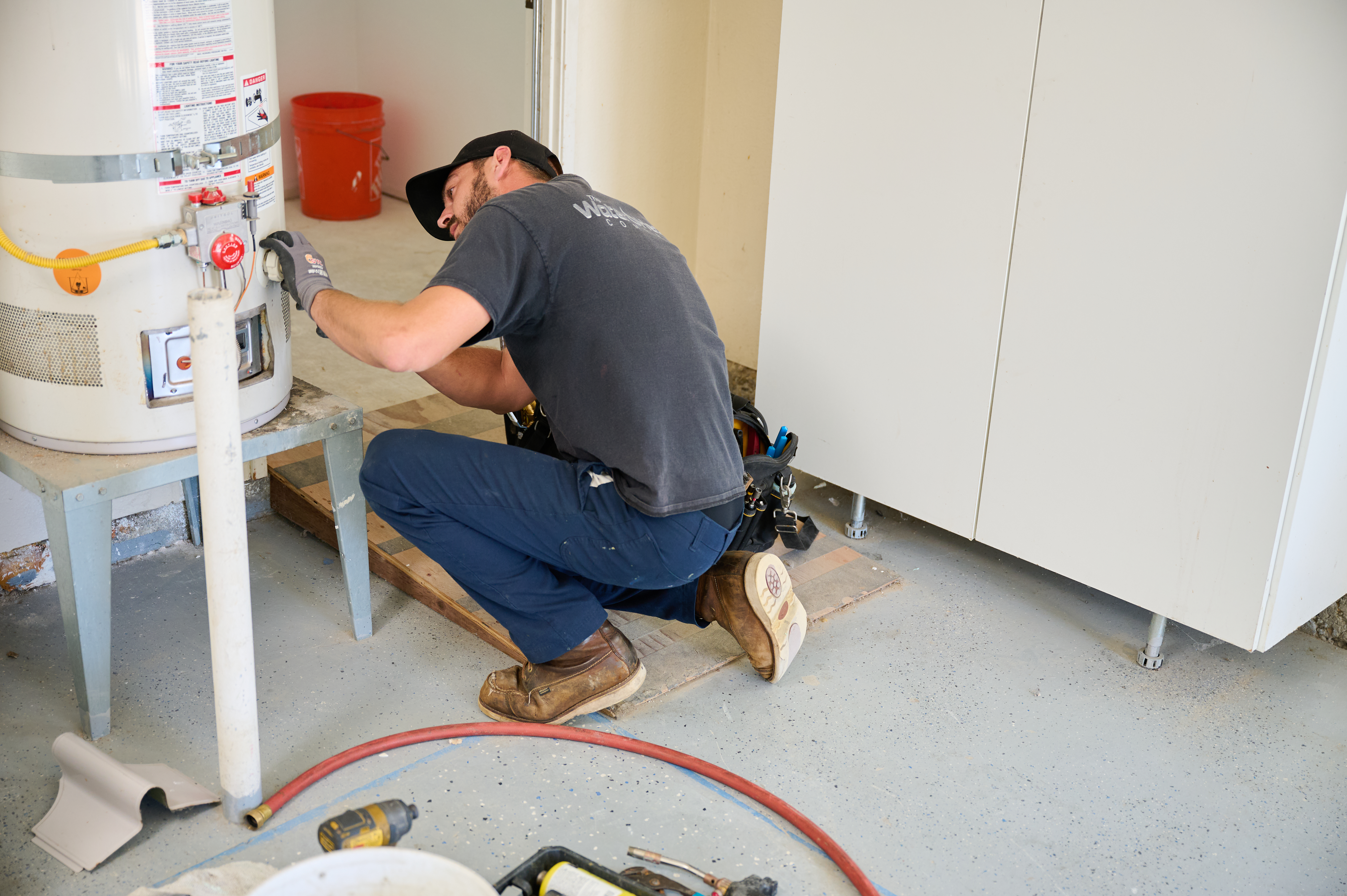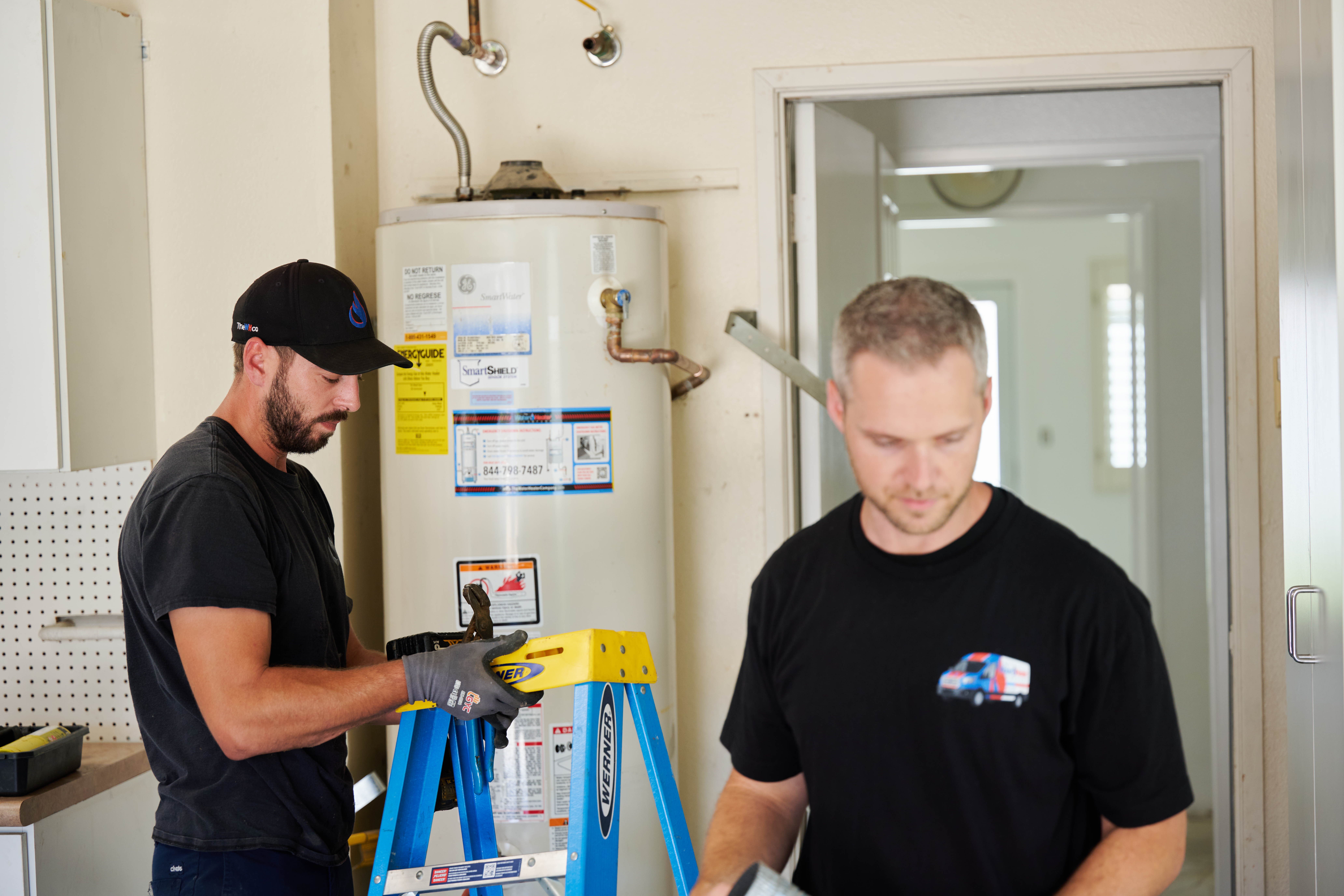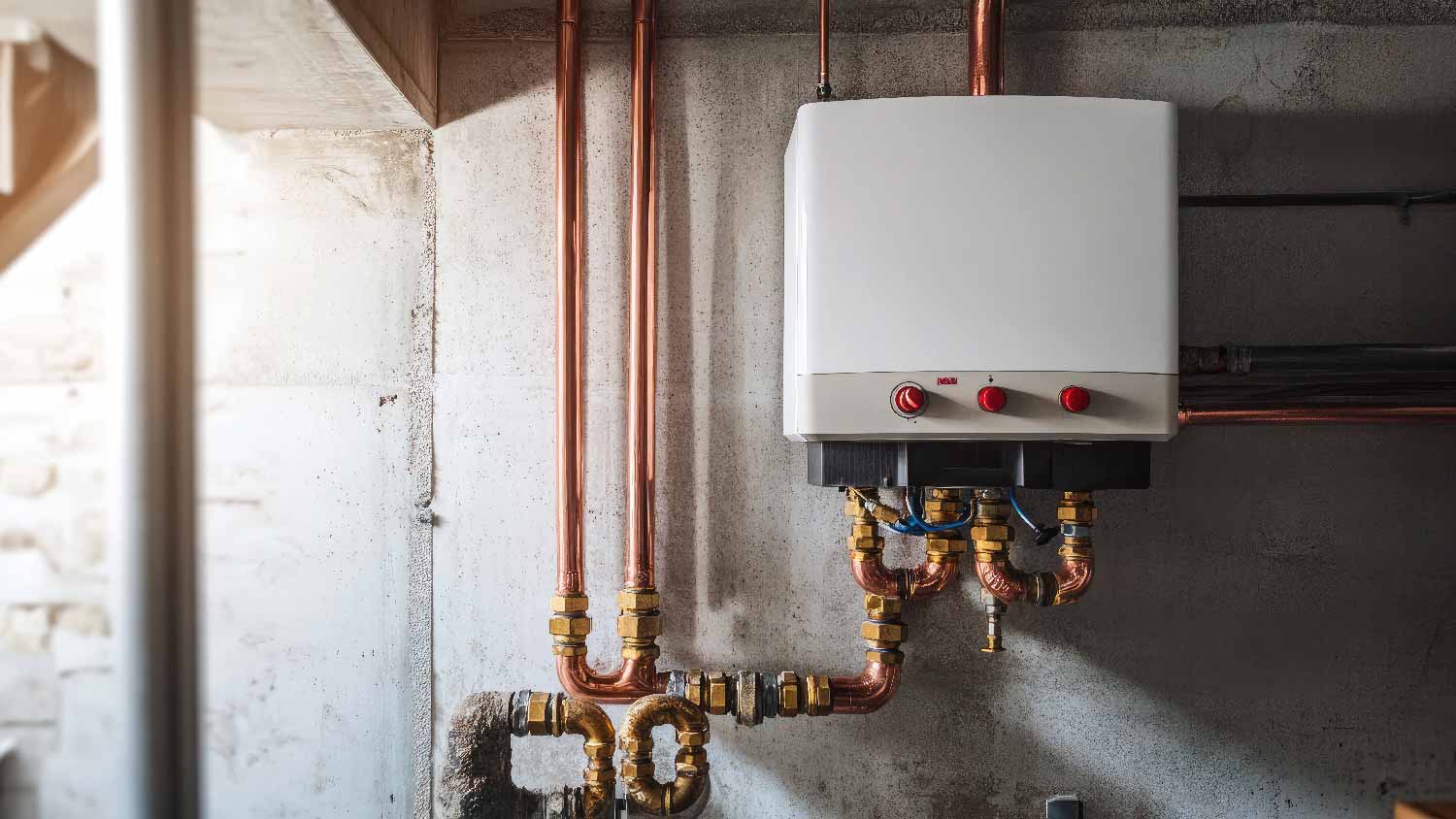
Running out of hot water too quickly or hearing strange noises when you call for hot water? Use this water heater repair cost guide to see what a fix will cost.
If you install a tankless water heater in a cold climate, you’ll probably find yourself in hot water—in a good way


Tankless water heaters have increased in popularity over the past few years due to their energy efficiency and the positive effect they have on homeowner’s utility bills. But what happens if you live in a colder climate? Here’s the lowdown on how to choose a tankless water heater that won’t leave you out in the cold.
A tankless water heater is a small unit that heats water on demand, versus traditional tanks that heat and store a large amount of hot water for use throughout the day. There’s a heat exchanger inside the unit, so when you turn on the hot water from your faucet, the exchanger heats the water as it flows through the unit.

As with most appliances, there are two primary options when it comes to fueling your tankless water heater: gas and electric. Of the two, the gas water heater generally works more efficiently and quickly to heat water.
Although they are more efficient, gas-powered heaters also require electrical power. So, if you live in an area with frequent power outages, you may want to pass on the tankless option.
Tankless water heaters are a good option for homes located in both warm weather and cold weather climates. However, there are several factors that can play into how well the heaters work in chillier climates.
If you live in a colder climate, a gas heater is definitely a better option than an electric model because gas-heated tankless water heaters produce higher flow rates than their electric counterparts. Whether they’re tankless or not, electric water heaters don’t heat water as quickly or efficiently as their gas counterparts.
To keep your home comfortable in cold weather, be sure to install the correct size tankless water heater. A professional tankless water heater installer can recommend the appropriate size based on how hard the tank will need to work to raise your home’s water temperature, plus the flow rate needed to meet the demands of your location’s climate.
There are pros and cons when it comes to converting to a tankless water heating system while living in a cold climate.
Tankless water heaters are more energy efficient than traditional water heaters, since they heat water on an as-needed basis. Since the water is heated on demand, there should be an endless supply of hot water, eliminating the frustrating conundrum of running out of hot water during your shower. They also take up less space than a traditional unit, so a tankless water heater can easily fit in a laundry room or a small closet.
If you’re looking to reduce your utility bills, a tankless water heater is a good place to start. According to Energy.gov, tankless water heaters can be 24% to 34% more energy efficient than traditional heaters. Even in homes that use a lot of hot water, tankless water heaters are generally between 8% and 14% more efficient. They avoid the standby heat losses that regular tank water heaters experience, thereby conserving energy.
On the flip side, flow rate is limited with this type of water heater, which is why you may find yourself with no hot water with a tankless water heater if your demand is too high or if the unit’s capacity is too small. If you want to run your dishwasher and take a hot shower at the same time, you could run into a problem.
In colder climates, it’s more difficult for a tankless water heater to heat water quickly, so your water may not get as hot as you would like. Some homeowners choose to install more than one tankless unit in their homes to avoid this problem.
Tankless water heaters cost between $1,175 and $3,370 to install. Keep in mind that electric models are usually less expensive than gas models. Electric tankless units run between $500 and $700, while gas models cost between $1,000 and $1,200.
The hourly labor rates charged by professional installers will depend on your geographic area, the size of the project, and other factors. You may be eligible for a tax credit for switching to a tankless heater, so make sure to do your research on your utility company’s website.
Below are the average costs to install tankless water heaters in five U.S. cities.
Boston: $2,700
Chicago: $2,100
New York: $2,200
Salt Lake City: $3,600
San Francisco: $2,600
When hiring a professional to install your tankless water heater, make sure that you hire someone who can help you choose the appropriate-sized model for your location. You don’t want to install a water heater only to find out that you’re not getting enough hot water to fit your needs. Your pro will also have to insulate the pipes that are feeding the unit to ensure that the water stays hot from the time it leaves the unit to the time it reaches your fixture.
If your unit is going to be installed outdoors, your pro will need to winterize it. Some tankless water heater manufacturers recommend that you avoid installing a unit where the temperature could drop below 35 degrees Fahrenheit, so consider that factor when picking an installation location.
From average costs to expert advice, get all the answers you need to get your job done.

Running out of hot water too quickly or hearing strange noises when you call for hot water? Use this water heater repair cost guide to see what a fix will cost.

Tankless water heater costs in Columbus, OH depend on the size of your water heater, location, fuel type, and more. Keep reading to calculate your expenses.

Learn about the different factors that go into water heater gas valve replacement costs to see if you should DIY the project or call a pro.

There are many parts of a hot water heater. The type you need to deal with depends on your water heater. Here's what each part does.

Did your tankless water heater freeze due to unexpected cold weather? Follow these steps to thaw your unit and prevent future freezings.

The right water heater wire size keeps your home safe and your water hot. Learn how to choose which size your household needs.